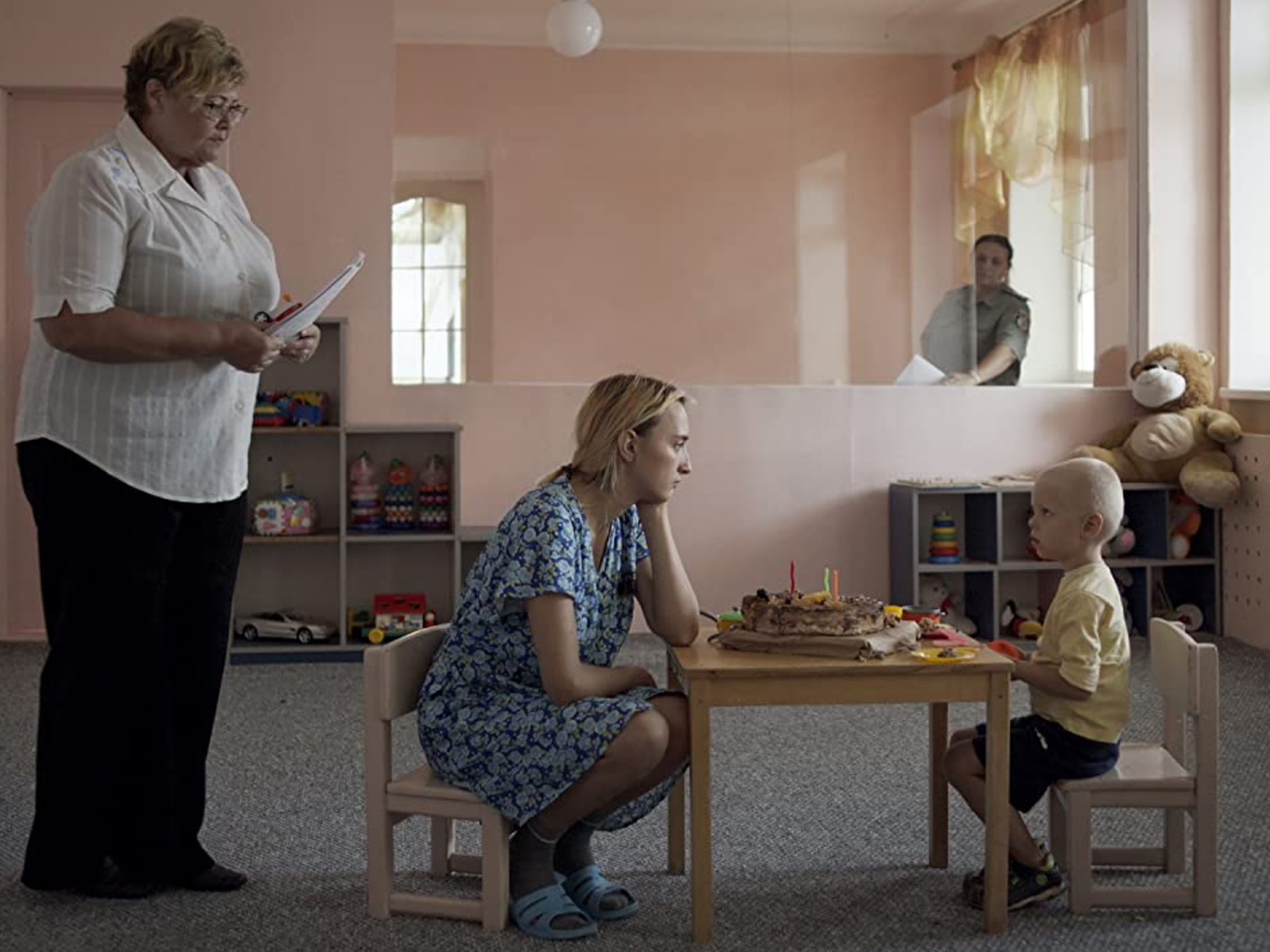
- Golden Globe Awards
107 Mothers (Ukraine, Slovakia, Czech Republic)
107 Mothers is a prison drama about women inmates in a Ukrainian jail. A Slovakia, Czech Republic, and Ukraine co-production, the film was directed by Peter Kerekes and is based on real-life stories of women jailed at Odessa Correctional Facility Number 74, one of two Ukrainian prisons where pregnant women can serve their sentences with their children. But the brutal terms state that when their children turn 3, they will be sent to an orphanage and forever separated from their mothers. If a woman is lucky enough and her sentence ends around the child’s third birthday, she can apply for parole.
107 Mothers opens with the piercing screams of a mother and her child. Leysa (played by Maryna Klimova), a new inmate, is giving birth in a squalid hospital room under the watchful gaze of Iryna (Iryna Kiryazeva), the sympathetic prison’s ward. The relationship between these two women, filled with anxiety, suspicion, and, eventually, understated mutual respect, becomes the focal point of this hybrid between documentary and fiction. The other women featured in this project are real-life inmates.
Leysa, who has committed a crime of passion, is serving a seven-year prison sentence. When asked why she murdered her husband, Leysa answers: “Jealousy.” Jealousy is an emotion many of the women in the prison can relate to. Through a series of one-on-one interviews, these women confess the logic behind their murders. Their responses – some tearful, others chilling and stoic – add texture to the film, raising questions about remorse and forgiveness.
The film, written by Kerekes with Ivan Ostrochovský, received financial support from the Slovak Audiovisual Fund, the Ministry of Culture of the Slovak Republic, Eurimages, the Czech Film Fund and the Ministry of Culture in Ukraine. The film was made in a span of five years and a total of 86 shooting days. It premiered in the Horizons section of the 2021 Venice Film Festival.
Kerekes directed his debut feature documentary 66 Seasons in 2003, winning several awards, followed by Cooking History (2009), nominated as Best Documentary at the European Film Awards, and Velvet Terrorists.
Slovakia-born Kerekes explains why he turned his attention to the issues of imprisoned mothers. “During our long research, we found a lot of interesting characters and stories,” he told the HFPA during a zoom interview from Bratislava. “There was a moment when we realized that the stories are so intense and so deep that we were not able to make it as a documentary film but to transmit the emotions we needed to have the form of a fiction film, even though all the situations are based on true stories.
“For the inmates, our project was a change from the daily prison routine, but also the possibility to confess. We spoke with all the women that gave birth in the prison, it was not exactly 107 as the title says, but it was really about 100 women who gave birth in prison who we talked to. And most of them had really very challenging stories that were full of life. And with these stories, we put together the story of the film. The women enjoyed the filming. They were coming up with ideas about what to film, scenes, dialogue. Very few were not willing to participate.”
Kerekes is now working on a film adaptation of the acclaimed novel “Dancing Bears” by Witold Szablowski and is also producing the documentary Fragile Memory.

